BE ADVISED: On Saturday, February 21, the Natural History Museum will be closing at 4 pm. The Los Angeles Memorial Coliseum will host the LAFC vs. Inter Miami soccer match, with kickoff at 6:30 pm. This event will impact traffic, parking, and wayfinding in the area due to street closures. Please consider using public transportation or rideshare.
BE ADVISED: The Natural History Museum is not participating in SoCal Museums Free-for-All on Sunday, February 22.
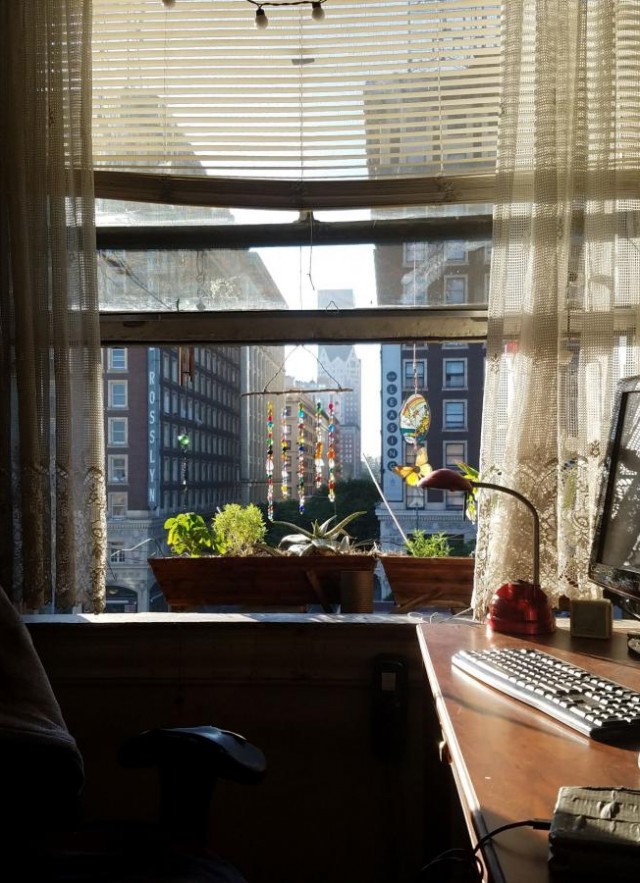
I’ve been teaching people about nature and their local environment for over 15 years. It’s a joy. This past summer I had an experience where I felt a connection to that everyday nature in a new and meaningful way. It was unexpected, immediate, and is a moment I hope to do justice with this article.
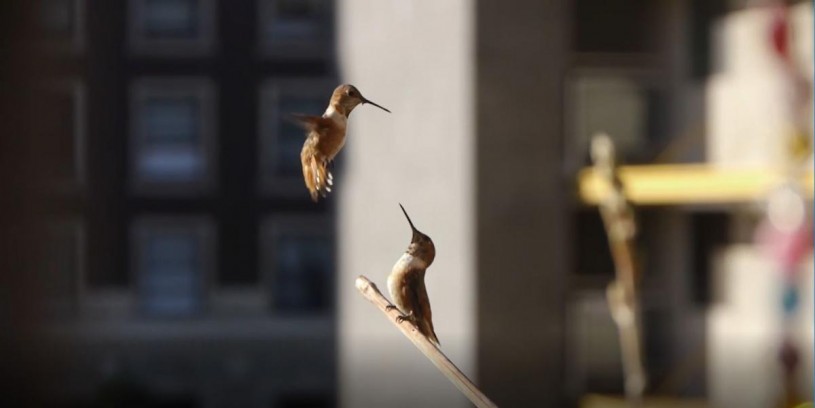
This past July, I asked Michael Gronwold for permission to use his name for the Museum's upcoming book, Wild L.A. Michael is one of our community scientists. In 2015, he and his hummingbird feeders were the topic for my article, A Charm of Hummingbirds. It described how Michael created habitat for hummingbirds by using window feeders and planters in his downtown L.A. (DTLA) apartment.
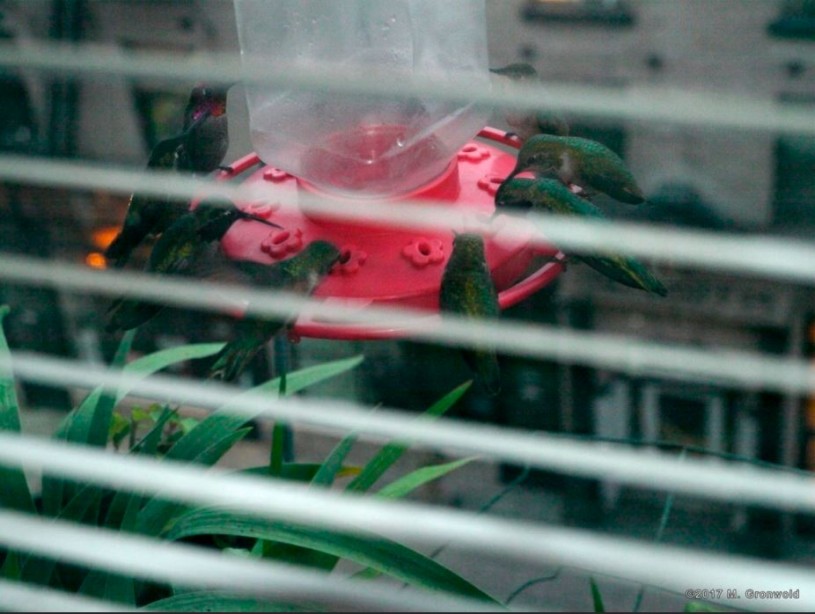
I assumed Michael was still feeding the hummingbirds, and I began to wonder if I could visit his place to witness this charm firsthand. I was happy when Michael said the Museum could use his name in the book, and even happier when he said I could visit.
It wasn’t until late August that I was finally able to visit Michael’s apartment. Built in the early 1900s, I sensed the building's history as I entered the lobby. Floor-to-ceiling columns, a sweeping staircase, tile floors, and, of course, Michael, greeted me. He and I took the old elevator up to the 4th floor, walked down his hall, and then we entered his home. Michael has a corner apartment with views facing south and west. As I saw the high ceilings, exposed brick, and tons of natural light, I thought, “Wow, what a great space.” My next thought, “How much does he pay in rent?”
Remembering I was there to talk about and experience hummingbirds, I pushed away my rental envy. Michael took me to both of his windows. The feeders were out, the window sill planters had plants growing in them, and I saw a butterfly.
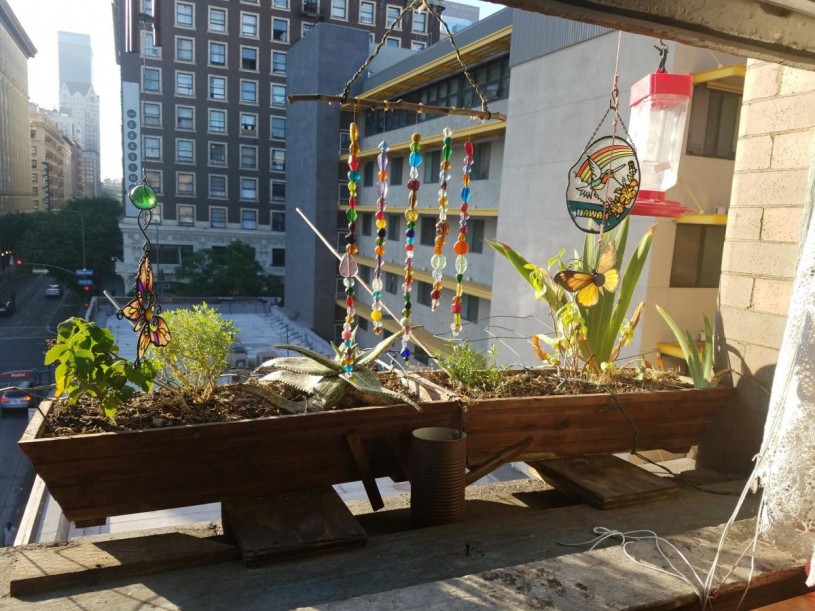
Now, to be honest, the window habitats were smaller than I expected. The feeders are the standard size you find at most garden stores, and Michael told me that the planters are 2 ft each in length. I don’t think I was expecting to see gallon-sized feeders or 6-ft long planters, but how normal it looked suprised me.
“You don’t have window screens,” I stated to Michael. This was the next thing I noticed. I have an amazing cat so I am always on the lookout for possible cat hazards (shoutout to Franklin). The absence of screens lets Michael better see so he can take photographs and videos of hummingbirds in action.
The birds fly to the feeders or land on the bamboo sticks or metal rods he placed in the planters for perching purposes. “There’s a hummingbird,” said Michael in a calm, but not blasé voice. My eyes got big as I saw the bird fly to the feeder, drink some nectar, and fly away. Soon another one flew up to the feeder, then to a perch, then back to the feeder.
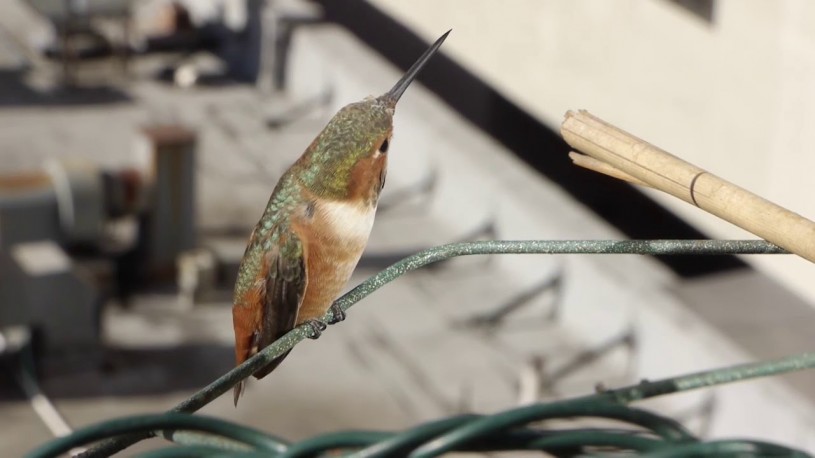
Watching this activity it was clear to me that these hummingbirds had been to Michael’s windows before. They knew it, they felt comfortable, it was a space for them. I laughed since it made me think of happy hour. As if Michael’s windows are their regular spot to grab a drink and wind down after working in DTLA. The many perches and feeders can serve dozens of hummingbird patrons at one time.
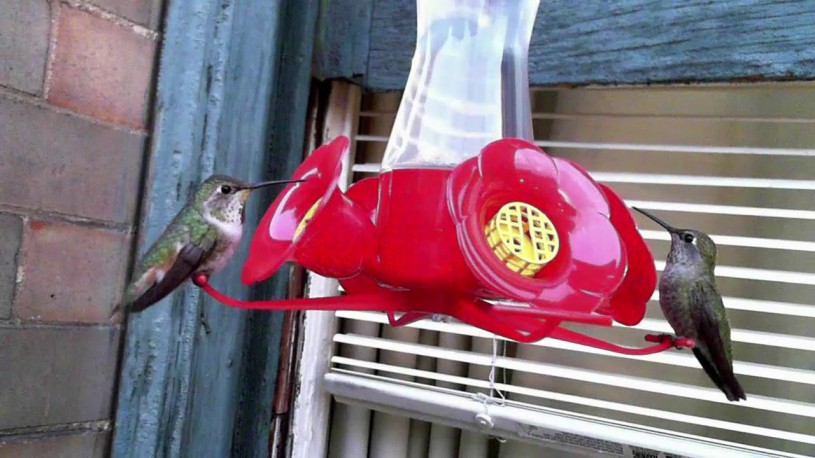
I asked Michael if the hummingbirds fight each other. “Sometimes there is fighting, but at dusk they stop fighting and take turns at the feeders. Almost as if they understand that it’s time to take a quick drink, recharge, and go home.”
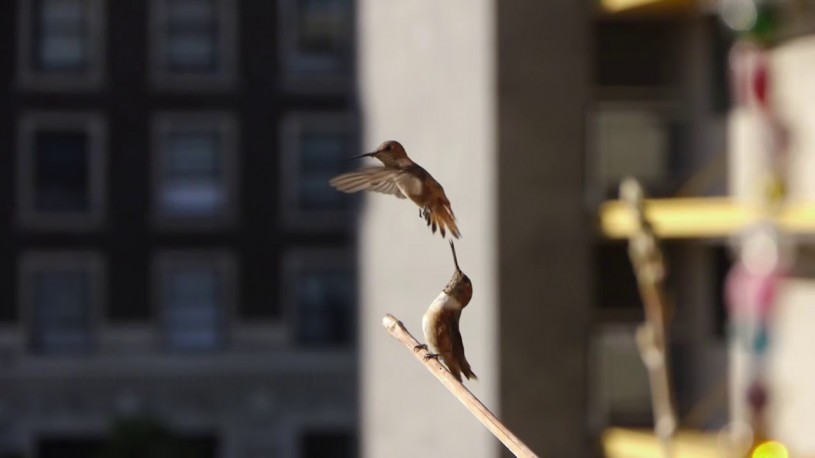
“Now watch this," continued Michael. He then lowered the window blinds on the south window, and angled them “so we can see birds, but they see a white wall.” This view enabled us to get even closer to the birds without causing them stress. On the west window Michael uses lace curtains and metal wind chimes to discourage birds from flying into his apartment. It is so neat. These simple tools provide a sense of security to the hummingbirds, while providing us a blind to observe their behaviors.
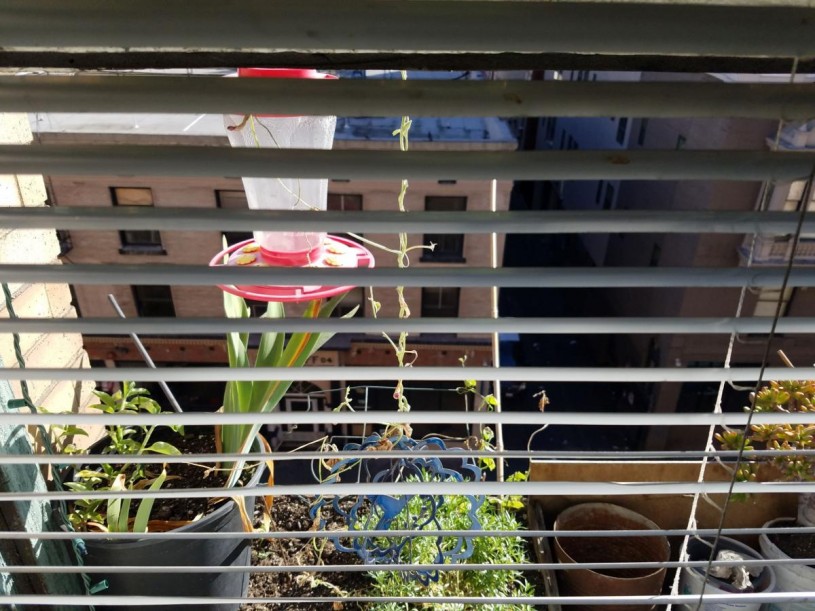
For the next 45 minutes, Michael and I geeked out over his DIY hummingbird gadgets, nectar recipes, and stories. I asked Michael if I could sit on his couch while I asked him more questions. Of course he said yes, and immediately after I sat, I looked at the west window. I had already seen this window, but the viewpoint was different from the couch. At first I noticed the window frame. Then the lace curtain. Next I noticed the window sill flowers and hummingbird feeders. Then to my surprise I found that if I looked further I could see other forms of nature. Trees were part of the landscape as they were living on the campus of a skyrise building.
I zoomed in and out with my eyes, focusing from window sill to landscaped trees, back to window sill. Back and forth. Then in this stillness I heard cars, people, and hummingbirds. Michael was watching me take it all in. “This is my world,” he said while wearing a relaxed and satisfied smile. And I got it. I was connected to city and nature.
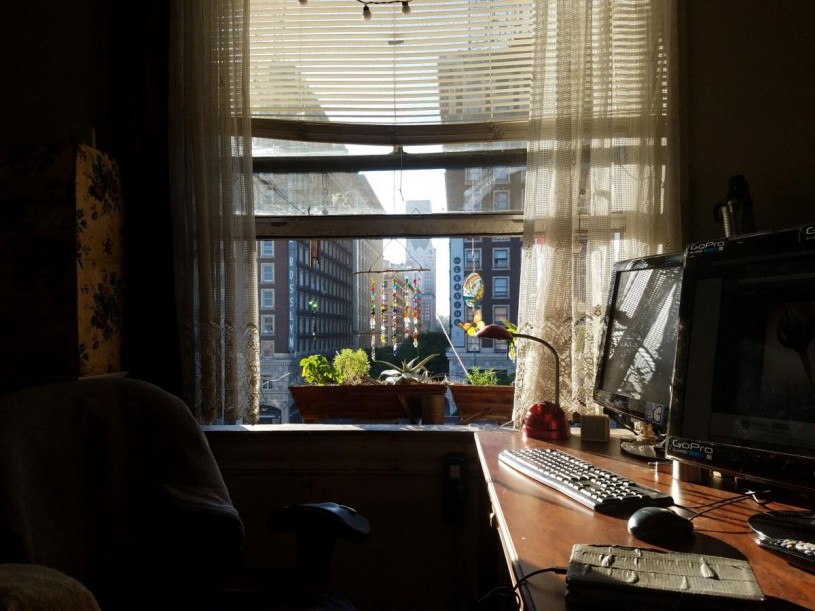
Sitting in a 1900s apartment, in the middle of DTLA, we were connected to urban nature. Cars, buildings, noise, people, sharing the city with hummingbirds, butterflies, and plants. “I totally get it. You have an amazing space here,” I said. Michael replied, “It keeps me grounded. Doesn’t nature do that for you?”
It sure does. It absolutely does. Even in a 4th floor apartment in downtown Los Angeles. Charming indeed.